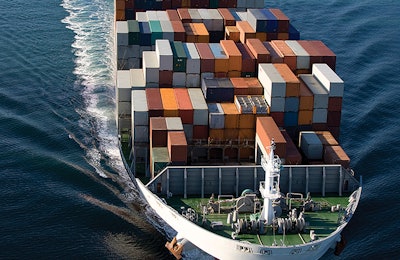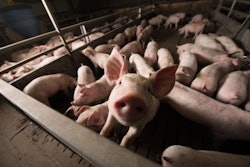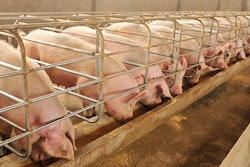
Bipartisan bill aims to relieve some of the supply chain bottlenecks at the nation’s ports
The U.S. House of Representatives has passed the bipartisan Ocean Shipping Reform Act of 2021 (H.R. 4996), which revises ocean shipping policies to address some supply chain bottlenecks at U.S. ports.
Among other provisions, the bill:
- Sets forth requirements for operating a shipping exchange involving ocean transportation in the foreign commerce of the United States
- Prohibits ocean common carriers and marine terminal operators from retaliating or discriminating against shippers because such shippers have patronized another carrier or filed a complaint
- Requires the Federal Maritime Commission (FMC) to publish and annually update all its findings of false certifications by ocean common carriers or marine terminal operators and all penalties assessed against such carriers or operators
- Requires ocean common carriers to adhere to minimum service standards that meet the public interest
- Directs the FMC to establish rules prohibiting ocean common carriers and marine terminal operators from adopting and applying unjust and unreasonable demurrage and detention fees
- Requires ocean common carriers to report to the FMC each calendar quarter on total import and export tonnage and the total loaded and empty 20-foot equivalent units per vessel that makes port in the United States
- Authorizes the FMC to initiate investigations of an ocean common carrier’s fees or charges and apply enforcement measures, as appropriate
- Revises annual reporting requirements for the FMC on foreign laws and practices to include practices by ocean common carriers
The bill, which was introduced in the House in August, passed on a 364-60 vote and will move on to the Senate.
The American Feed Industry Association’s (AFIA) Leah Wilkinson, vice president of public policy and education, applauded the bill’s passage.
“Over the past year, the ongoing COVID-19-exacerbated supply chain issues have created logjams at U.S. ports and blocked the export of our members’ products, resulting in steep financial losses and irreversible friction with international customers. We applaud our U.S. House leaders, particularly Reps. John Garamendi (D-California) and Dusty Johnson (R-South Dakota), for their recognition that the stakes are too high to continue treading water. At a time when our animal food manufacturers are vital to keeping our food supply chain stable and supporting the recovery of our economy, we urge the U.S. Senate to move this bill full-steam ahead.”
Most industries affected by bottlenecks
Most industries in the U.S., including agriculture, are struggling with “perhaps the worst supply chain bottlenecks to date,” according to a recent report from CoBank.
Around the world, countries are grappling with transportation and logistical issues rooted in a pandemic-fueled spike in ecommerce, facility shutdowns and the bevy of variables fueling the inability to find skilled (and willing) labor.
Port congestion and high freight rates, i.e. the price of a container has more than tripled since last year, have caused delays and lost profits.
Shipping container usage was up 20% in August 2021, but with a 20% longer turnaround time — utilizing more containers without shipping more cargo, Reuters reported.










